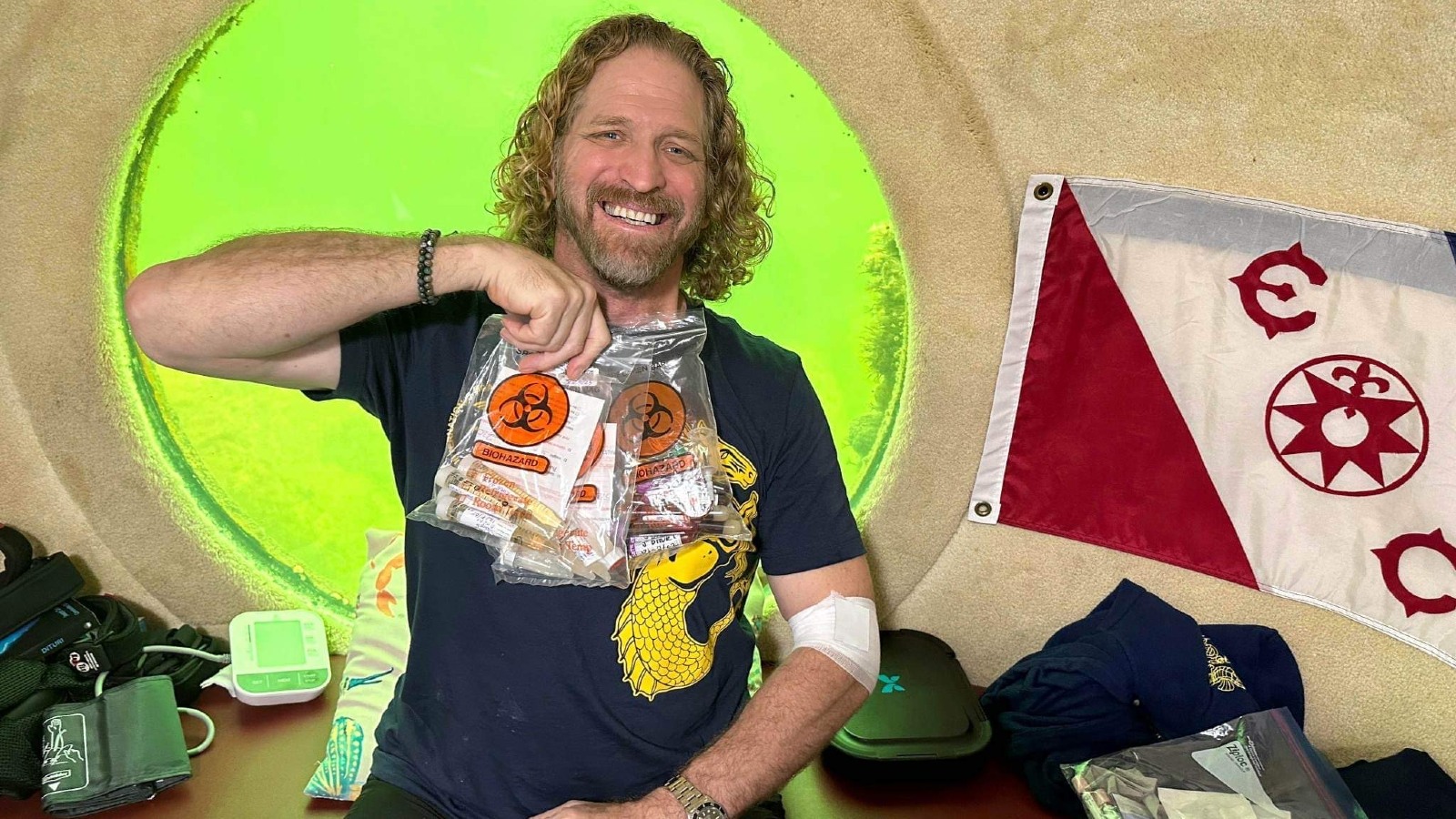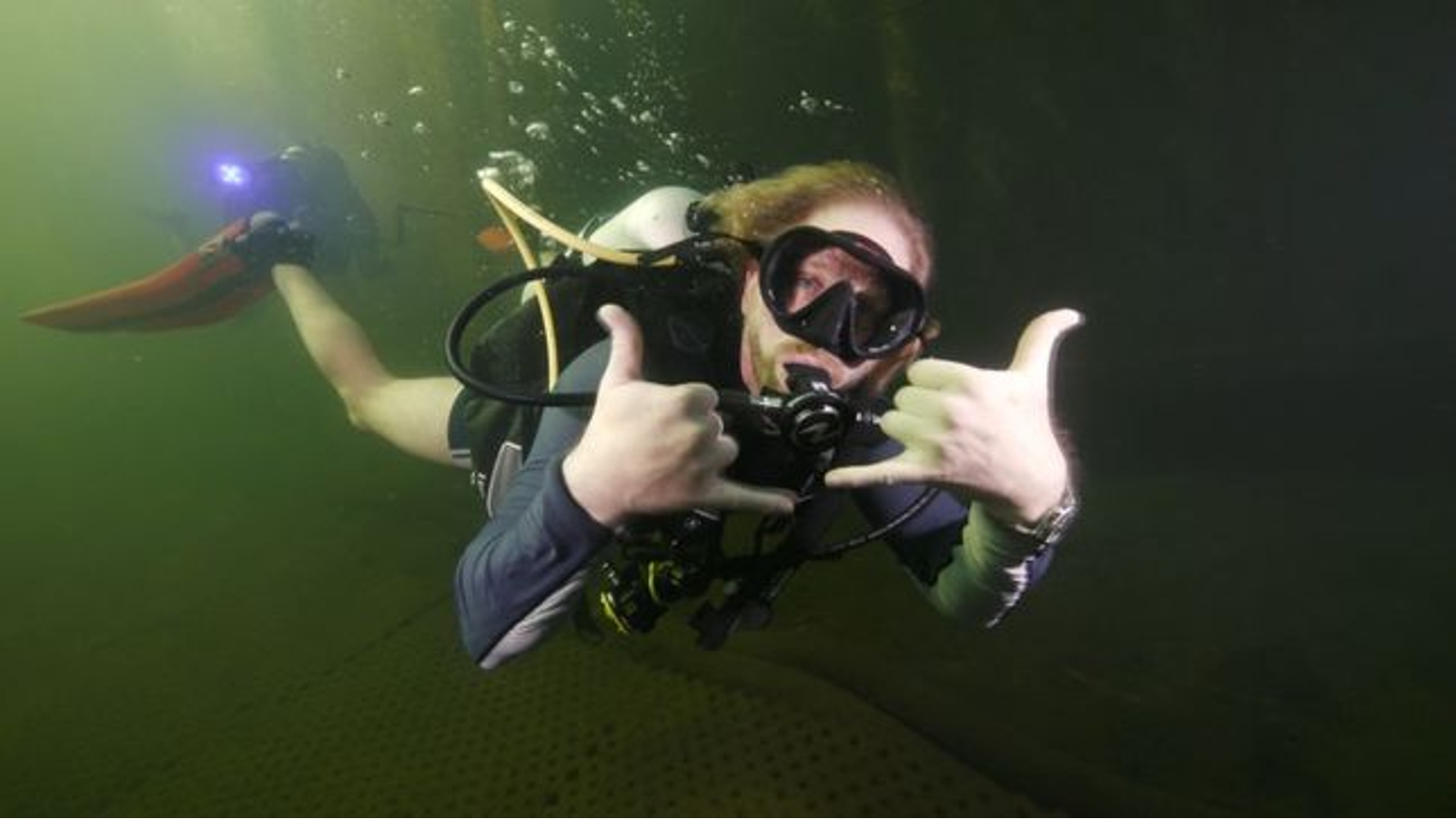
A scientist who spent a record-breaking 100 consecutive days living in a seafloor habitat has just resurfaced. Last month, while he was still underwater, Live Science got the chance to chat with him about this unique experience and the initial scientific findings of his mission.
Joseph Dituri, a 55-year-old biomedical engineer with the International Board of Undersea Medicine and a former U.S. Navy saturation diver, lived inside the Jules' Undersea Lodge off the coast of Florida for 100 days between March 1 and June 9. The mission, known as Project Neptune, was a scientific endeavor to study the effects of living in a high-pressure environment for a sustained period.
Dituri, who goes by the nickname "Dr. Deep Sea," eclipsed the record for the longest stay in an underwater fixed habitat, beating past record holders, Bruce Cantrell and Jessica Fain, scientists who spent 73 days living in the Jules' Undersea Lodge in 2014, according to Guinness World Records.
On May 19 (Day 80 of the mission), Dituri spoke with Live Science from the Jules' Undersea Lodge to explain what it was like to live underwater in a confined space and how his body and brain had changed over time.
Related: What are the deepest spots in Earth's oceans?
Living underwater
The Jules' Undersea Lodge sits 30 feet (9 meters) below the surface of the green-tinged Emerald Lagoon in the coastal waters off Key Largo. The habitat has a surface area of around 100 square feet (9 square meters) and is pressurized to around 1.7 atmospheres. "It's basically like a really small RV," Dituri told Live Science.
Dituri's days underwater were jam-packed. He conducted medical tests on himself, taught students in his class at the University of South Florida, did press interviews, shared videos on Instagram, worked out with resistance bands, spoke to schoolchildren and went scuba diving in the lagoon via the habitat's moon pool — the only way in and out of the lodge.

"I have almost no downtime," Dituri said. "But it's a really good thing to stay busy when you're trapped in a small space."
Dituri learned to stop keeping track of how far along he was to avoid getting fixated on the amount of time remaining. "I've stopped counting the days," Dituri said. "You've just got to set your mind to it and do it."
Around 50 other individuals — including family members, doctors, scientists and schoolchildren — visited during his stay, which helped alleviate the mental challenges of prolonged confinement and solitude. Being virtually connected to the outside world has also helped, Dituri said. "But it's not the same as seeing people in person."

Dituri's career in the U.S. Navy helped him overcome the psychological challenges of living underwater, but some aspects of the experience still shocked him.
"One of the things that has surprised me the most is how much I miss the sun," Dituri said. "I want to go out and take a peek." But what Dituri actually missed most during the mission was skydiving, he said.
Collecting data
A research team of doctors and scientists continually monitored changes to Dituri's physiology by analyzing samples of his blood, urine and saliva. They also carried out a variety of tests, including electrocardiograms (EKGs) to test his heart function, electroencephalograms (EEGs) to test his brain activity, pulmonary function tests to see how well his lungs were working, pupillometry tests to monitor the pressure in his skull, and regular blood pressure tests. Researchers also monitored his sleep using advanced wrist-based sensors, and he underwent various psychological evaluations regularly.
Dituri shared some of the initial results from these tests with Live Science. He said that during the 80 days he had already been underwater, his oxidative stress — damage to cells caused by reactive byproducts of oxygen breakdown, which is known to play a role in aging — had decreased by two-thirds and that "all the inflammatory markers in his body" had been cut in half. He also noted an increase in his stem cell count and the length of his telomeres, the protective ends of chromosomes that naturally shorten throughout a person's lifetime. His cholesterol levels also dropped.


However, a "total shocker" was that the percentage of his sleep made up by REM sleep, or the stage of sleep where most dreaming occurs, increased from between 35% to 40% up to more than 60%. People who stayed overnight in the habitat showed smaller increases in REM sleep, he added.
In a more recent interview with the Daily Mail on Day 93 of his mission, Dituri claimed that because of the accumulation of all of these factors, he now feels "10 years younger."
Dituri also exercised with a new type of resistance band designed to help astronauts maintain muscle mass in space, though the research team hasn't disclosed the results yet.
None of these findings have been peer-reviewed or replicated yet, which are key elements of the scientific method, Dituri said. As such, more research is needed to make concrete conclusions.
Dituri hopes his sojourn underwater helps spread a message of ocean conservation. At least 3,000 children learned about the mission, either via video calls or in person, which is "unheard of" in such a short time, he added. This has allowed him to teach the "next generation" why the ocean is so important.







